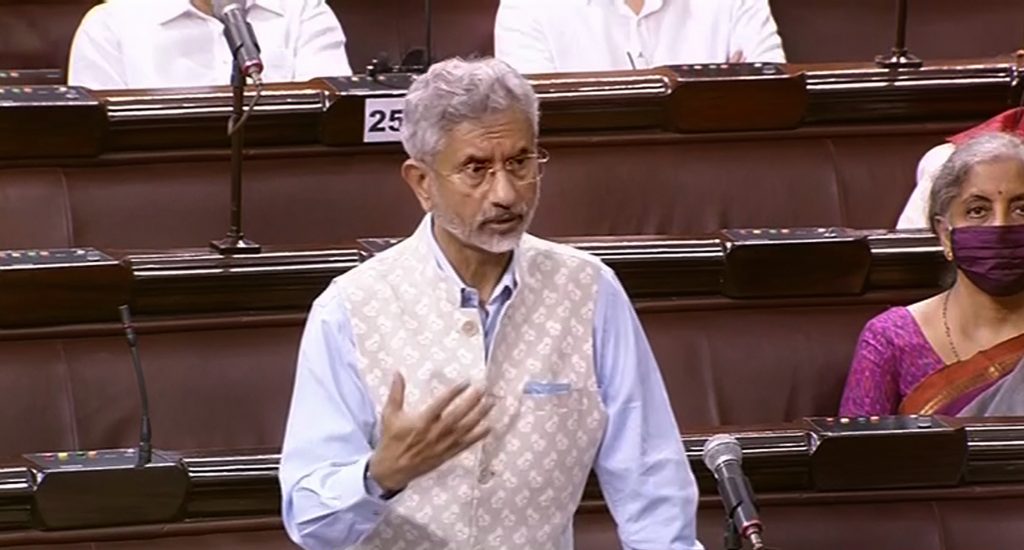New Delhi: A bill which seeks to ban funding of weapons of mass destruction and also empowers the Centre to freeze, seize or attach financial assets and economic resources of people engaged in such activities was passed Wednesday by the Lok Sabha.
Responding to a discussion on the Weapons of Mass Destruction (WMDs) and their Delivery Systems (Prohibition of Unlawful Activities) Amendment Bill, External Affairs Minister S Jaishankar said the passage of the amendment will strengthen India’s national security and its global position.
The House passed the bill by a voice vote with members expressing unanimity that such a measure was the need of the hour.
The Weapons of Mass Destruction and their Delivery Systems (Prohibition of Unlawful Activities) Act, passed in 2005, only banned manufacture of weapons of mass destruction.
“In recent times, regulations relating to proliferation of weapons of mass destruction and their delivery systems by international organisations have expanded,” Jaishankar said in the statements of objects and reasons of the Bill.
Jaishankar noted that the United Nations Security Council’s targeted financial sanctions and the recommendations of the Financial Action Task Force have mandated against financing of proliferation of weapons of mass destruction and their delivery systems.
“We are upgrading a law which is 17 years old, which like other legislations need updating. FATF needs very specific reference to financing…The bill is meant to be amendment to shortcoming, something which is missing in a current law, it is not meant to be a new law,” the minister explained.
Jaishankar said till now, the government was issuing notifications under the UNSC Act, 1947 which related to financial measures. The notifications were implemented by the Reserve Bank of India (RBI) and other ‘involved government bodies’.
“They would advice the banks, they would do the monitoring following order which the MEA would regularly bring out. Our effort today is to give legislative backing so that this is not one-by-one ad-hoc measure but there is a legal way of dealing with what is a continuous problem,” Jaishankar pointed out.
The minister stated that FATF evaluated whether countries are responsible in terms of their financial policy. “We have seen countries who have done things, followed policies and actions which are not right brought to account. And there are very significant consequences of that. I think most members are familiar with the countries involved – some of them are very close to us,” Jaishankar said apparently referring to Pakistan.
The Bill seeks to insert a new Section 12A in the existing law which states that ‘no person shall finance any activity which is prohibited under this Act, or under the United Nations (Security Council) Act, 1947 or any other relevant Act for the time being in force, or by an order issued under any such Act, in relation to weapons of mass destruction and their delivery systems’.
During the discussion, MPs across party lines supported the Bill. Initiating the discussion, Congress MP Uttam Reddy proposed that the term ‘individual’ in the Bill should be replaced with ‘organisations and countries’ which finance weapons of mass destruction. It should also be considered that the bill applies to foreigners, he said.
